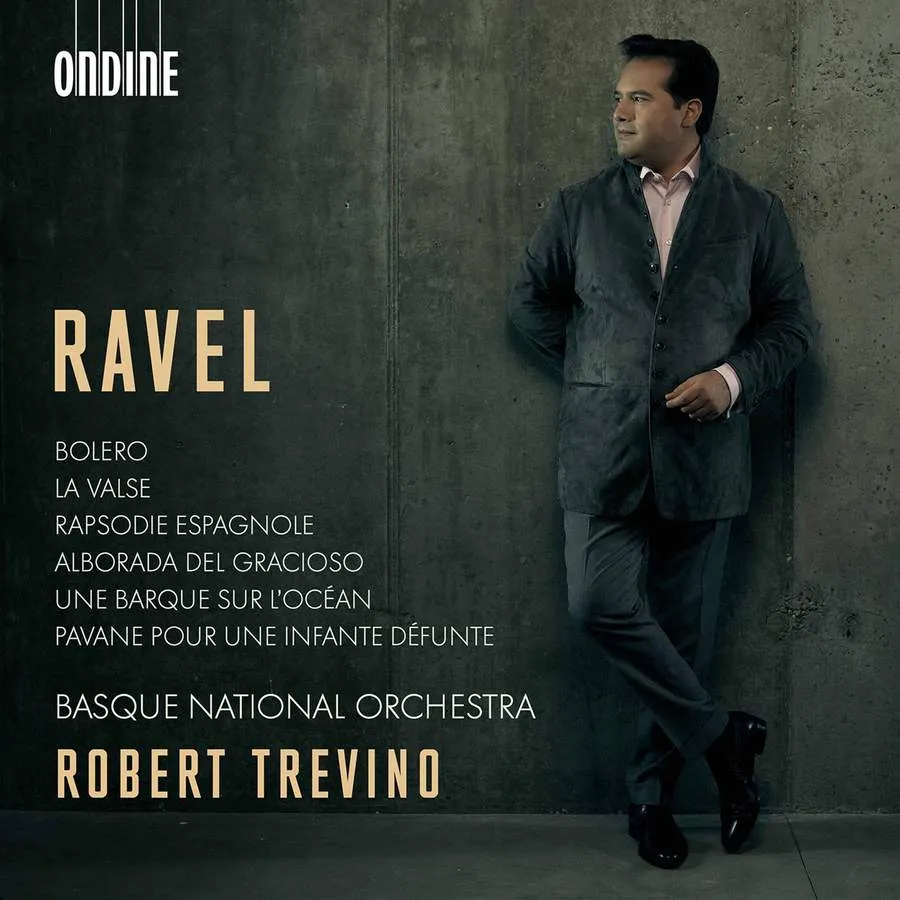
Ravel La valse; Alborada del gracioso; Rapsodie espagnole; Une barque sur l’océan; Pavane pour une infante défunte; Boléro Basque National Symphony Orchestra/Robert Trevino Ondine ODE 1385-2 69:39 mins
Maurice Ravel’s father was Swiss-born French, his mother a Basque raised in Spain and he himself was born in the French Basque region, to which he often returned in later life, remaining fond of its folk music. So, one might expect some special insights from the Basque National Orchestra. Under its young current music director, the Mexican-American conductor Robert Trevino, the discipline and quality of the playing is immediately evident in La valse, as is the energy with which they work up the final frightening climax of the piece – or, indeed, the ebulliently dancing and surging last pages of the Rapsodie espagnole.
Yet the salient quality of Trevino’s approach is his preference for slowish tempos and the care he brings to details and dynamics which, in Ondine’s spaciously clear recording, enables one to hear many a tiny ingenuity or colouring of scoring that go unnoticed in more summary accounts. In the opening bars of the Rapsodie the falling scale ostinato is a mere sensitised whisper, while the clarinets impart just that extra touch of sensuous languor to their first curvaceous entry.
Maybe Une barque sur l’océan is too slow here: Ravel’s scoring sounds gorgeous, but forward flow is lost. On the other hand, Ravel had a famous spat with Toscanini for taking Boléro too fast. Trevino launches the piece at almost exactly Ravel’s preferred slowish tempo of 66 beats to the minute, building the orchestral texture with implacable steadiness to its fatalistic climax, without a trace of vulgarity.
Read more reviews of the latest Ravel recordings
Bayan Northcott
